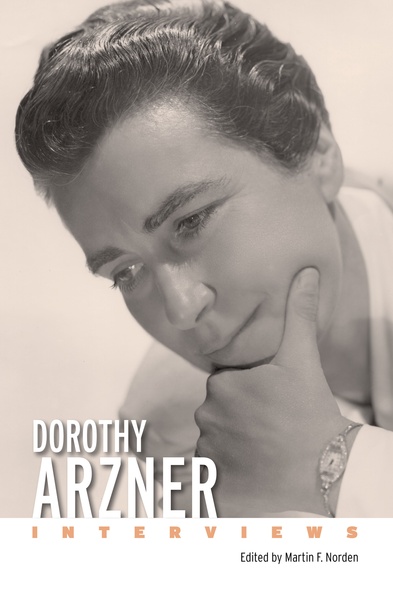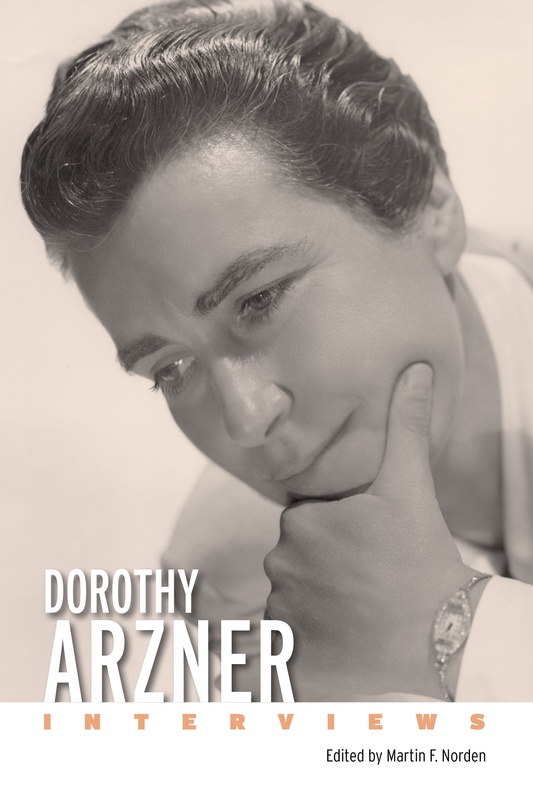
Through dozens of interviews, a detailed chronology and filmography, and a selection of Dorothy Arzner’s own writings—including her unfinished autobiography—Dorothy Arzner: Interviews offers major insights into and an in-depth examination of the life and career of one of the few women to direct films during Hollywood’s Golden Age. A key figure in Hollywood for decades, she directed more studio films than any other woman in history. Her movies often focused on courageous women who must make difficult decisions to remain true to themselves—women not unlike Arzner herself, who once said that “all we can ever do in our work is write our own biography.”
Dorothy Arzner (1897–1979) began her film career in 1919 as a script typist for the Famous Players-Lasky company, which later became Paramount Pictures. She quickly rose through the ranks to become a script supervisor, screenwriter, and editor before directing her first film, Fashions for Women, in 1927. After the release of her final Hollywood film, First Comes Courage, in 1943, Arzner changed directions in her professional life. She made several training films for the Women’s Army Auxiliary Corps during World War II and directed many television commercials for Pepsi-Cola in the 1950s. She concluded her career by serving as a filmmaking instructor at the Pasadena Playhouse College of Theatre Arts and UCLA, where she helped launch the first wave of college-trained moviemakers.
Dorothy Arzner: Interviews is of great importance for what it documents, despite the occasional reticence of its subject. It reveals an underrated film artist and innovator worthy of praise in those ways alone and only more remarkable because of her unique position as a female director.
Martin F. Norden (1951–2023) taught film history and screenwriting as professor of communication at the University of Massachusetts Amherst. He has more than one hundred publications to his credit, including The Cinema of Isolation: A History of Physical Disability in the Movies; ReFocus: The Films of Paul Leni; and Lois Weber: Interviews (published by University Press of Mississippi). He presented his film research at dozens of professional conferences across North America and Europe. And he served as a consultant on the documentary films CinemAbility and Be Natural: The Untold Story of Alice Guy-Blaché.




